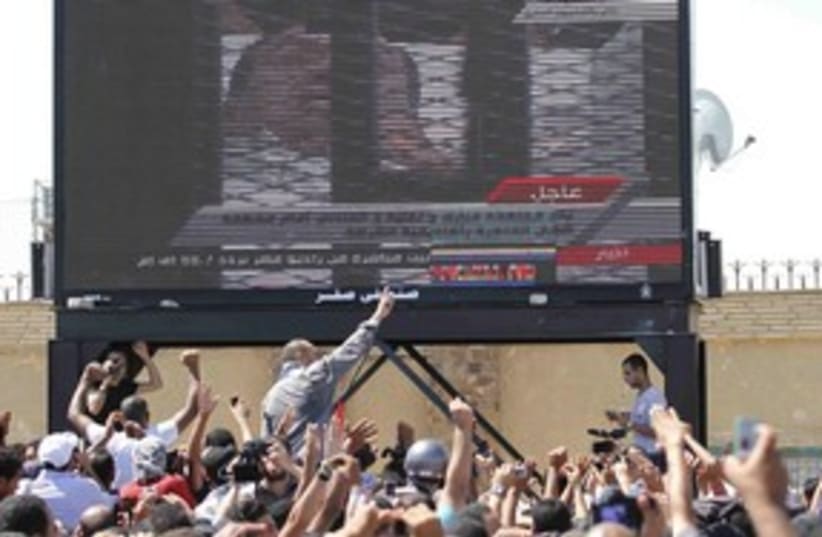Cairo: Hosni Mubarak in caged hospital bed as trial begins
Egyptians clash outside trial; trial supporter: "I don't believe this, to see a president on trial, I never imagined it. I'm so happy!"; Mubarak supporter: "We'll demolish the prison if Mubarak is sentenced."
